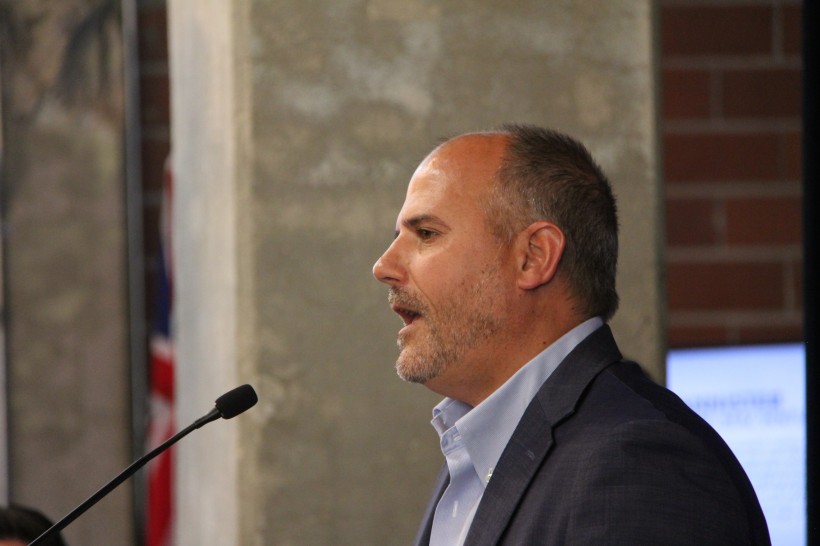The announcement last week of up to $9.7 million in funding for Kitchener-Waterloo accelerator programs could have profound implications for the region’s economy, and on how startups are developed in Canada.
If successful, the programs will help to produce several more high-growth tech companies with annual revenues of more than $100 million each. What’s more, the programs could provide a model for accelerators across Canada (and elsewhere in the world) working with later stage companies.
The Canadian government last week announced the Canadian Accelerator and Incubator Program, or CAIP, would provide as much as $9.7 million over five years to a group of accelerators in the region to support growth-stage companies. The government is making the contribution to Communitech, which is working with University of Waterloo’s Velocity program, the Wilfrid Laurier University LaunchPad and the Waterloo Accelerator Centre.
“It really is a unique program on a global scale because its focus is on scale-ups,” Steve Currie, Communitech’s Vice-President of Strategy, said in an interview. “We’re looking at companies growing 20 percent over a three-year period. The goal is to grow them into the $100 million revenue stage.”
Operated by the National Research Council, CAIP funds accelerators across the country, but virtually all of them (like almost all accelerators around the world) focus on the launch of early-stage companies. Led by CEO Iain Klugman, Communitech has been trying lately to aid later-stage companies, with its REV program – an accelerator for companies with some traction.
Currie said the new program targets at least 30 tech companies that have the potential to grow into $100 million-a-year outfits. They could include graduates of REV or maybe some of the companies in KW that recently received multi-million-dollar venture capital funding.
He said the curriculum will focus on five areas that are usually challenges for scaling companies:
- Growing revenue faster;
- Extending their reach internationally;
- Finding, keeping and developing talent;
- Accessing growth capital;
- And improving operational efficiency.
The organizers have been working to identify the gaps in these skill sets, and are now working on specific programs to fill those gaps. For example, it is bringing in a growth coach, who has overseen a company with more than $1 billion to help teach revenue growth. On the capital front, the organizers want to show entrepreneurs how to seek capital from sources other than VC, such as debt, private equity or a public listing.
There are now two or three tech companies in Kitchener-Waterloo with revenues of $100 million or more, and Currie said the long-term goal is to have many more.
“What we’re shooting for is to have a 10x multiplier in this so we can have some effect on the economy,” he said. “But realistically what we’re looking at is to have five in the first five years, and 10 more in the next 10 years.”
It doesn’t sound like many, but Currie said research from the Kauffman Institute in the U.S. shows that 600,000 startups are launched in the U.S. each year, but only 200 (or 0.03 percent) achieve $100 million in sales in six years. The fact is it’s really difficult to build a $100 million company.
But further research shows that if you get a couple of these successful ventures in a community, the effects are astonishing. Staff breaks away and form other startups, and smaller companies are incentivized to follow the lead of the big player and grow more quickly.
Currie and his collaborators hope it will be a model that is repeated across the country.
“It certainly has the potential to capture what we’re doing and transfer it to other regions,” he said. “There are now very few regions that are focusing on the scale-up phase of the company lifecycle.”
Eye on KW is a regular feature on the Kitchener-Waterloo startup community.










